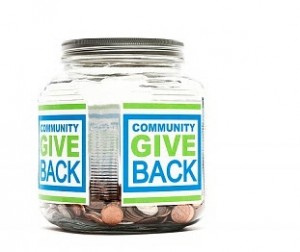 |
Businessman and community service leader C. Frederick Wehba understands the challenges for charities and philanthropic organizations relying on the donations of the American public. With the U.S. economy in a holding pattern, C. Frederick Wehba has witnessed a hesitance on the part of many people to make donations, for fear of compromising their own personal financial situations. Here, C. Frederick Wehba shares about his own experiences with assisting the community. ZRYLW: It’s so nice to talk with you once again, Mr. Wehba. |
C. Frederick Wehba: I’m grateful to be here and share my story.
ZRYLW: As an active member of your community, how do you see the future of philanthropy?
C. Frederick Wehba: As the U.S. economy shows signs of improvement, the hope is that Americans will experience an increased desire to give to charities.
ZRYLW: What are the most prevalent reasons why citizens are deciding not to donate to charities right now?
C. Frederick Wehba: Due to the unemployment rate and resulting financial hardships, it’s only natural that charitable donations would shrink.
ZRYLW: How much do Americans donate to charity?
C. Frederick Wehba: In each of the last few years, the total exceeded $214 billion.
ZRYLW: From where were these statistics drawn?
C. Frederick Wehba: Tax records of the Internal Revenue Service are used to formulate the data.
ZRYLW: Are these tax records public knowledge?
C. Frederick Wehba: The IRS offers general information to the public each year that describes how much money has been given to charity.
ZRYLW: Is the financial information of individual households protected?
C. Frederick Wehba: Yes, absolutely. The data concerning individuals or families is protected for the safety of all Americans.
ZRYLW: From your perspective, what is the common thread among people who do choose to be philanthropic?
C. Frederick Wehba: Whether or not they feel personally connected to a specific organization or cause, they find tremendous benefits in giving donations.
ZRYLW: Why do you feel that citizens are more likely to give back to the community?
C. Frederick Wehba: Donating time and money often makes people feel a greater sense of purpose.
ZRYLW: What about yourself? Is there a particular reason for your own community service?
C. Frederick Wehba: It’s fair to say that I’m primarily guided by my religious beliefs.
ZRYLW: In summary, how can U.S. charities get back on the right track?
C. Frederick Wehba: It’s time to reframe the conversation and get to the heart of what truly matters.
ZRYLW: And that is…?
C. Frederick Wehba: For the generations of tomorrow, our efforts today are going to make a considerable difference in their well being. It’s important to keep our children’s and grandchildren’s futures in mind.
ZRYLW: Thanks for joining us today, and being such an inspiration!
C. Frederick Wehba: All credit goes to my family members and friends, who have encouraged me with every step. But you are certainly welcome, and thank you for having me.
Whether he’s supporting the Boy Scouts of America or one of his community’s local churches, C. Frederick Wehba is always eager to be involved in local development initiatives. C. Frederick Wehba believes that volunteerism has defined the United States and given rise to some of the greatest achievements in our society.